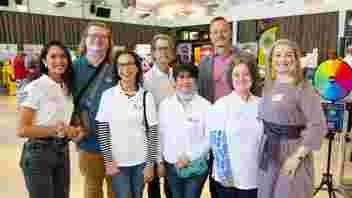Post | February 2019 | News | 2 min read
Donate for International Women's Day

Did you know that every 1 in 500 persons in The Netherlands is registered as homeless, and for every registered homeless person, there are two to three unregistered homeless?
International Women’s Day is coming up on Friday 8 March, and one of the many ways we are playing a part is by making their already-tough lives of the homeless women in The Hague just a bit easier. On this day, they will be receiving a variety of things to help relieve their stress like coffee, cake, a trip to the hairdresser, a foot massage, pedicure, reiki, make-up, manicure and more.
We at Volunteer The Hague along with PEP and DenHaagDoet are helping to arrange goodie-bags with handy and practical products for these women, and therefore asking for any and all donations of one or more of the following items:
- New and unused socks and underwear
- Body lotions, creams, etc.
- Unused make-up
- Shawls, gloves, etc.
- Material to decorate clothing
Not necessary: toothbrushes and toothpaste (already available)
The issue of modern homelessness is broad and complex, and there are a wide range of reasons why someone might be homeless. Whether they are employed but cannot afford housing, or not able to work due to physical or mental illnesses or anything in-between, people without homes face many everyday challenges. We want to try and alleviate some of the symptoms of homelessness and help those get back on their feet. If you have any extra productions mentioned above to spare, please deliver the items to Judith Alkema on the 2nd floor of the PEP (located at Riviervismarkt 2, 2513 AM in Den Haag) preferably before February 14, but late donations are also welcome.
What if you don’t have any products or clothing, but plenty of wool? Donate it to Wool for Warmth!

Wool for Warmth is a fabulous new initiative based in The Hague that combines a network of passionate knitters and crochetters, those holding onto the extra wool from a past project, and the homeless in The Netherlands. Together, they transform old scraps of wool and scraps into beautiful homemade winter gifts to the 34,100 registered homeless in The Netherlands. This is a no-strings-attached gift that is not only environmentally friendly for the homeless, but also induces a sense of purpose and reduces loneliness for knitters—the ultimate recycling!
If you would like to donate your spare wool, or if you are a knitter or crochetter and wish to donate your time for a great cause, contact Cathy at [email protected].


